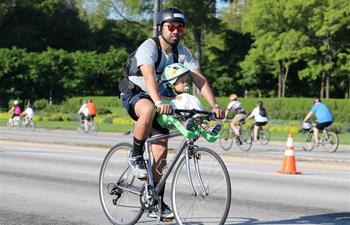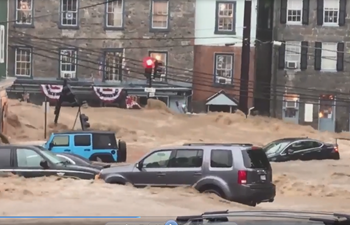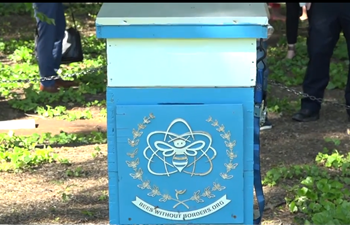WASHINGTON, May 29 (Xinhua) -- Perhaps about 5,000 people died in Puerto Rico as a result of Hurricane Maria in 2017, according to a study published Tuesday by scientists at the Harvard T.H. Chan School of Public Health.
The official death toll is only 64 due to the devastating storm slamming the island, which the study issued by the New England Journal of Medicine called "a substantial underestimate."
Instead, the researchers calculate there's a 95 percent likelihood the death toll was somewhere between about 800 and 8,500 people. They say about 5,000 is a likely figure which may still be "an underestimate."
"Hurricane Maria caused massive infrastructural damage to Puerto Rico," the Harvard team writes in its study. "In our survey, interruption of medical care was the primary cause of sustained high mortality rates in the months following the hurricane."
Understanding the true number is important for many reasons, they wrote, "There are ramifications not only for families, not only for closure, but also financial ramifications," such as for aid and preparedness.
The researchers randomly selected 3,299 households in Puerto Rico and asked the occupants about their experiences. From that approach, they concluded that between Sept. 20 and December 31, 2017, there were 4,645 "excess deaths" that would not have occurred if the island hadn't been plunged into a prolonged disaster in the wake of the storm.
They then extrapolated that finding to the island's total population of 3.4 million people to estimate the number of deaths, subtracted deaths recorded during that same period in 2016, and concluded that the mortality rate in Puerto Rico had jumped 62 percent in the three months following the storm.
The study notes that, 83 percent of the households in Puerto Rico were without electrical power for the duration of their study, which stretched more than 100 days, from the date of the hurricane until the end of 2017.
The death rate is a contentious subject, in part because federal and island governments haven't responded as rapidly to the disaster as they have in other hurricane emergencies, said a NPR report.
The household survey is a widely accepted technique for estimating casualties following a disaster, said the report, adding that the technique can be misleading if the sample isn't truly random or if some households have been wiped out altogether and are therefore missing from the survey, said the report.













